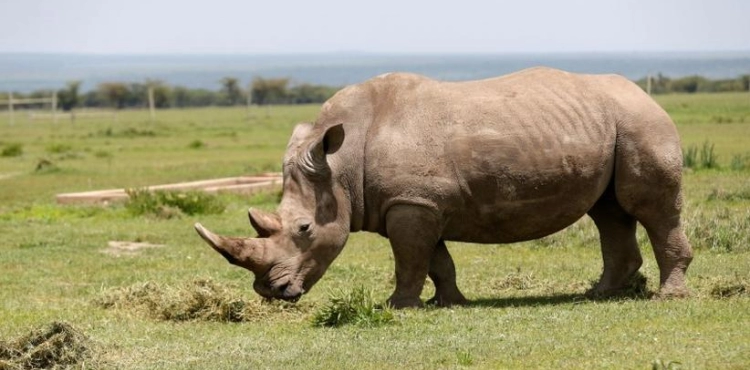A team of international scientists racing to save the rare northern white rhino said they have made progress in preventing the animal´s complete extinction by producing three more embryos.
The Biorisk Consortium, led by Dr. Thomas Hildebrandt of the Leibniz Zoo and Wildlife Research Institute in Germany, said three more embryos of the rhino subspecies were produced this month, bringing the total number of viable embryos to 12.
Two of the three new embryos were produced using semen from a northern white rhinoceros "Sonny", who provided the genes for all existing embryos.
However, for the first time, semen from Angelivo, a male who lived in a San Diego safari park and died in 2014, was used to produce the third embryo.
A statement issued yesterday evening, Thursday evening, stated that it was previously believed that "Angalivo´s sperm" is unable to successfully fertilize eggs," adding that his genetic material helped produce a "first-degree fetus."
The plan is to get more embryos every three to four months. This endeavor began in 2019.
"In the near future, embryos will be transferred to surrogate mothers of southern white rhinos to create northern white rhino offspring," said Biorisk, which is supported by the German Federal Ministry of Education and Research and private donors.
The northern white rhino is considered functionally extinct except for two - "Nagin" and her daughter, "Fatu" - who live in Kenya´s Ol Pejeta Reserve. Vatu eggs alone helped produce viable embryos.












